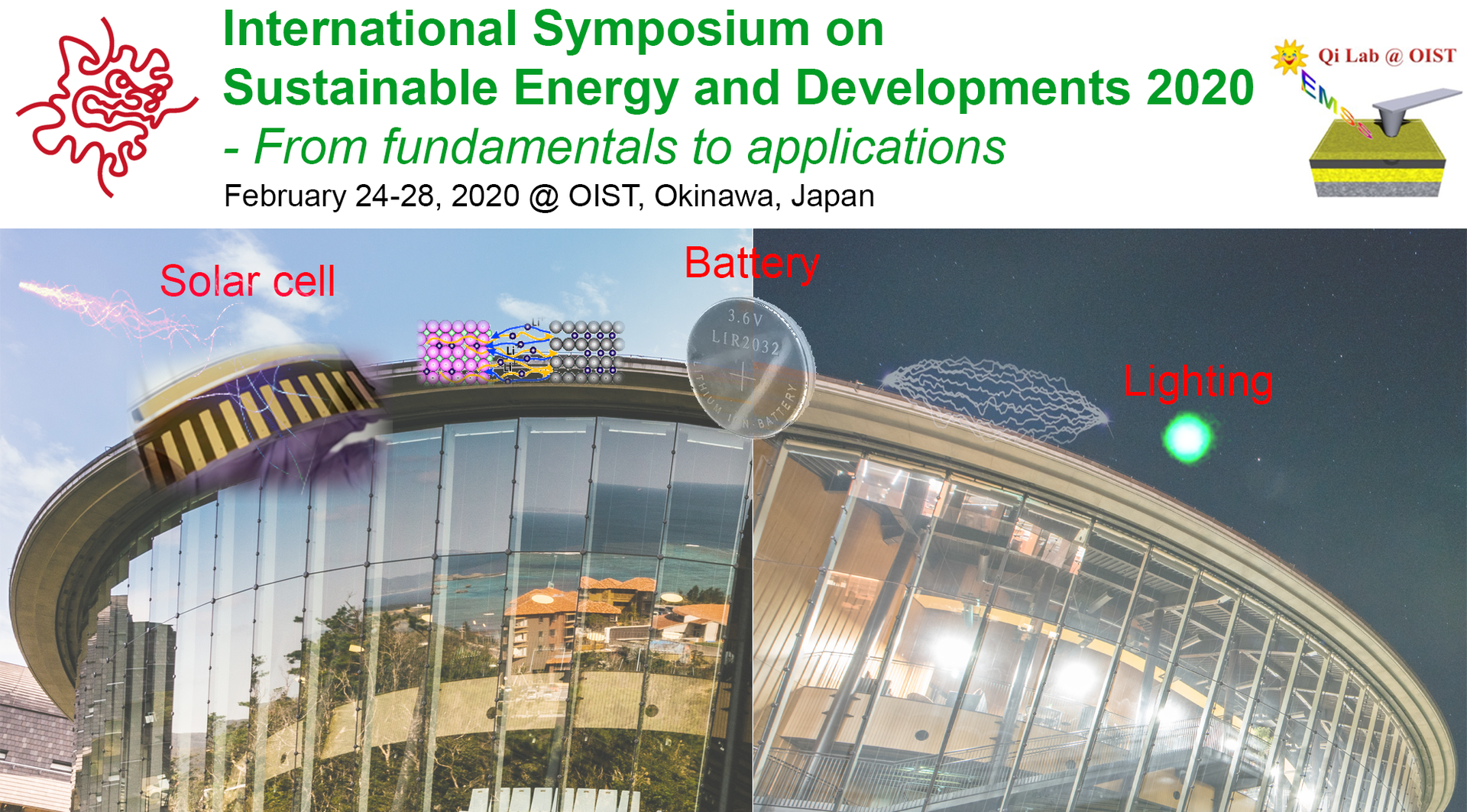International Symposium on Sustainable Energy and Development

Organizers
Symposium Sponsor
Symposium Organizer
Symposium Chair
Advisory committee for the symposium
Prof. Keshav Dani, Femtosecond Spectroscopy Unit, OIST, Japan
Prof. Nam-Gyu Park, Sungkyunkwan University, Korea
Dr. Kai Zhu, National Renewable Energy Laboratory, USA
Conference Schedule
Welcome Reception: Evening of February 23, 2020
Conference Program dates: February 24 -28, 2020
(Recommended date of travel is arriving in Okinawa on Sunday, February 23rd and departing on Saturday, Feburary 29th)
Venue
Okinawa Institute of Science and Technology Graduate University
1919-1 Tancha, Onna-son, Kunigami-gun
Okinawa, Japan 904-0495
Summary of Aims of Workshop
Currently, more than 80% of the world’s energy generation is originated from fossil fuels (coal, oil, natural gas, etc.), which produces CO2 and other pollutants as byproduct. The side effects associated with pollution, climate changes, and global warming have raised public awareness of the need to tap alternative “green” energy sources. This proposed symposium aims at bringing to OIST renowned scientists and engineers to report and discuss the latest progress related to materials science and engineering strategies with emphasis on future sustainable energy and development directions in Asia and Worldwide. Information exchange and research collaboration will be promoted through stimulating results and engaging discussion, discussion panels, poster sessions, and mixer events of symposium participants and OIST graduate students, and other flexible interactions.
The conference will emphasize the topics such as, but not limited to:
- Global trends of sustainable energy and development
- Wind, tidal, wave, geothermal energy technologies
- Various types of new generation solar cells, e.g., dye-sensitized solar cells, amorphous-Si solar cells, multicrystalline-Si solar cells, copper indium gallium selenide solar cells, copper zinc tin sulfide solar cells.
- Transparent photovoltaics (PV) for building integrated PV (BIPV) and building applied PV (BAPV)
- Hot electron photovoltaic devices
- Ferroelectric oxide solar cells
- Up- and down-conversion strategies in energy harvesting
- Moving PV research forward towards commercialization
- Innovative energy storage systems (perovskite materials based batteries, supercapacitors, etc.)
- Fundamental investigation on degradation mechanisms of Li ion batteries
- PV applications of organic-inorganic perovskites and beyond
- Lighting devices based on novel materials
Room and board will be covered for all workshop participants. OIST will help with arranging visas, if necessary. Travel grants are available for abstracts of merit.
Last updated October 11, 2019



